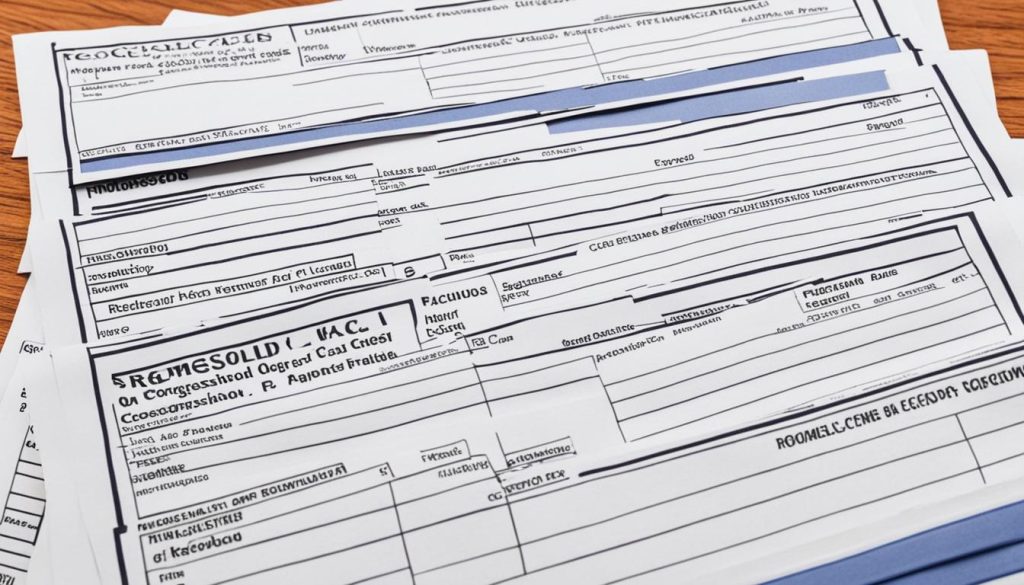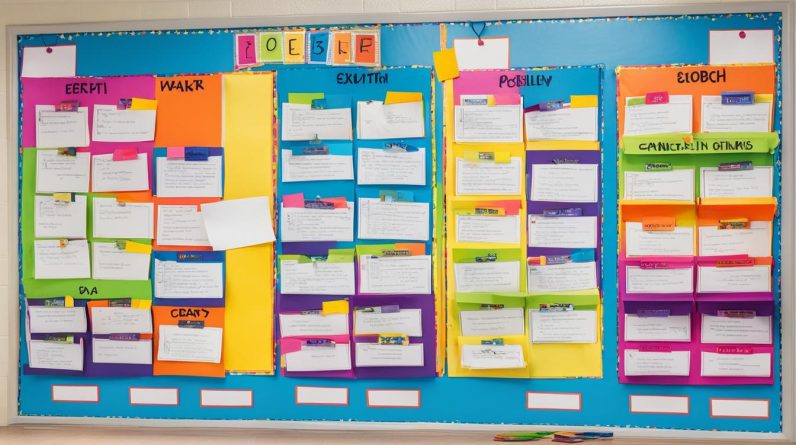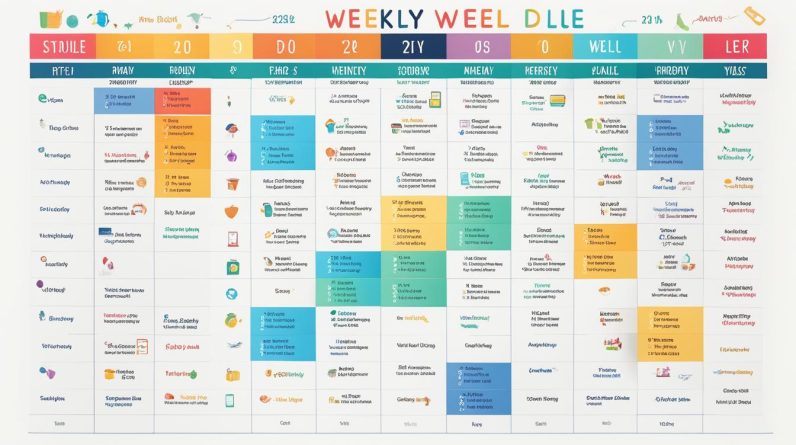If you’re considering homeschooling in South Carolina, it’s important to familiarize yourself with the homeschooling laws and regulations in the state. This guide will provide you with the essential information you need to get started, including registration requirements and accountability options. Additionally, we’ll explore the importance of keeping documents in order, finding the right curriculum, and connecting with local support groups.
Key Takeaways:
- Understand homeschooling laws and regulations in South Carolina before getting started.
- Choose an accountability option that aligns with your educational philosophy.
- Keep important documents, such as membership letters, filed for record-keeping purposes.
- Select a curriculum that suits your child’s needs and interests.
- Connect with local homeschool support groups to create a sense of community and gain valuable support.
How to Homeschool in South Carolina: 5 Easy Steps
The process of homeschooling in South Carolina can be broken down into five simple steps. By following these steps, you can navigate the homeschooling laws, access valuable homeschool resources, and choose the right accountability options for your family.
- Choose an Accountability Option: Begin by selecting an accountability option that aligns with your homeschooling goals and preferences. South Carolina offers Option 1, Option 2, and Option 3. Options 2 and 3 are the most commonly chosen accountability associations for homeschoolers in the state. They provide support, guidance, and the necessary oversight to ensure compliance with homeschooling laws. Research each option thoroughly to find the one that suits your family best.
- Gather Important Documents: Keep essential documents on hand to comply with homeschooling laws and maintain accurate records. These may include membership letters, which serve as proof of association and legal compliance. Store these documents safely for future reference.
- Find the Right Curriculum: Select a curriculum that meets your child’s educational needs and aligns with your preferred teaching style. Consider factors such as your child’s learning preferences, academic goals, and any specialized resources or programs that may be available. Research various homeschool curricula and resources to find the best fit for your family.
- Keep Track of Progress: Implement a system for record-keeping to monitor your child’s progress and document their learning activities. This may involve maintaining a homeschool portfolio, recording daily or weekly activities, or creating lesson plans and journals. Consistent record-keeping helps you assess your child’s academic growth and fulfill record-keeping requirements outlined by your chosen accountability option.
- Connect with Local Support Groups: Establish connections with local homeschool support groups and meet-ups to foster a sense of community and gain valuable support. These groups provide an opportunity to connect with fellow homeschooling families, share resources and experiences, and participate in social and educational activities. Online communities and forums can also provide ongoing support and guidance.
By following these five easy steps, you can confidently navigate the homeschooling landscape in South Carolina and create a rewarding educational experience for your child.
Registering with an Accountability Option
If you’re planning to homeschool in South Carolina, it’s important to understand the registration requirements and accountability options available to you. In this section, we’ll explore the different options and provide guidance on selecting the right accountability association.
Understanding the Accountability Options
South Carolina offers three accountability options for homeschoolers: Option 1, Option 2, and Option 3. While Option 1 allows you to directly homeschool under the South Carolina code of laws, most homeschoolers opt for an accountability association under Option 2 or Option 3 for additional support and guidance. These associations provide valuable resources, including academic records maintenance, testing services, and curriculum guidance.
Choosing the Right Accountability Association
When selecting an accountability association, it’s important to consider the services they offer and ensure they align with your specific needs. Some associations may provide online resources, while others may offer in-person support and social activities. Take the time to research different associations, read reviews, and reach out to other homeschooling families for recommendations. By finding an association that suits your family’s requirements, you can benefit from their expertise and support throughout your homeschooling journey.
Notification Requirements
If your child has never been enrolled in a South Carolina public school, you do not need to notify the local school district about your decision to homeschool. However, if your child has previously attended a public school, you’ll need to officially withdraw them and provide the necessary documentation to the school district. It’s important to familiarize yourself with the specific requirements of your chosen accountability association and ensure compliance with South Carolina homeschooling laws.
Importance of Getting Documents in Order
No matter which accountability option you choose for homeschooling in South Carolina, it is essential to keep your important documents organized and readily accessible. These documents, such as membership letters issued by the association, serve as evidence of legal compliance. You should safeguard these letters by filing them in a secure location for future reference. Some associations even provide wallet cards that you can carry with you for teacher discounts and other purposes.
Ensuring that your documents are in order demonstrates your commitment to legal compliance, and it simplifies the administrative aspects of homeschooling. By keeping these documents easily accessible, you can easily answer any inquiries or requests from authorities, ensuring a smooth homeschooling journey for you and your child.
Remember, staying organized and maintaining legal compliance not only provides peace of mind but also sets a positive example for your child regarding responsibility and accountability.

Membership letters are crucial documents for legal compliance in homeschooling.
Being well-prepared with the necessary documents is an important aspect of homeschooling in South Carolina. Membership letters act as proof of your legal compliance and may be required by authorities. These letters are typically issued by the homeschool association you choose as part of your accountability option. They demonstrate that you are registered and adhering to South Carolina’s homeschooling laws.
Membership letters vary depending on the association, but they typically include information such as your family’s name, address, and the academic year. By keeping these letters filed in a safe place, you can easily refer to them if required during audits or compliance checks. Additionally, some associations provide wallet cards that you can conveniently carry with you for identification purposes or accessing teacher discounts.
Having these documents in order not only ensures legal compliance but also instills a sense of confidence and peace of mind as you embark on your homeschooling journey. You can focus on providing the best education for your child, knowing that you have met the legal requirements and can respond effectively to any inquiries or requests that may arise.
Finding the Right Curriculum
When it comes to homeschooling, one of the most important decisions you’ll make is choosing the right curriculum for your child. With the abundance of homeschool curriculum options available, it can often feel overwhelming. However, it’s essential to remember that you don’t have to buy everything or follow a one-size-fits-all approach. Homeschooling allows you the flexibility to tailor your child’s education to meet their individual needs and interests.
To start, it’s crucial to understand your homeschooling style. Are you more inclined towards a structured and guided approach, or do you prefer a more relaxed and child-led style? Your homeschooling style will help guide you in selecting the curriculum that aligns best with your preferences and your child’s learning style.
While you have the freedom to customize your curriculum, there are five basic subjects that are typically considered essential and required by law in most states, including South Carolina. These subjects are:
- Reading/Writing: This subject covers language arts and literacy skills, including reading comprehension, writing, spelling, and grammar.
- Science: Science education encompasses various subtopics such as biology, chemistry, physics, earth science, and environmental science. Consider hands-on experiments, science books, and educational resources.
- Social Studies: Teach your child about history, geography, civics, economics, and other social sciences. Engage them with books, documentaries, field trips, and interactive resources to explore the world.
- Math: Focus on mathematical concepts, arithmetic, algebra, geometry, and calculus, depending on your child’s grade level. Utilize textbooks, online programs, and manipulatives to help them grasp mathematical principles.
- Physical Education (PE): Don’t forget the importance of physical activity for your child’s overall well-being. Encourage participation in sports, outdoor activities, and exercise routines to promote physical fitness.
Once you have the foundation of these basic subjects in place, you can consider additional subjects based on your child’s interests, strengths, and future goals. Do they have a passion for music? Art? Languages? Tailor the curriculum to nurture their talents and expand their knowledge in these areas.
Remember, homeschooling is a unique and individualized approach to education. As the parent and teacher, you know your child best. Trust your instincts and choose a curriculum that suits their learning style, interests, and academic goals.

| Subject | Features |
|---|---|
| Reading/Writing |
|
| Science |
|
| Social Studies |
|
| Math |
|
| Physical Education (PE) |
|
Importance of Record-Keeping
Record-keeping is a vital aspect of homeschooling in South Carolina. It not only helps you meet the legal requirements but also plays a crucial role in monitoring your child’s progress and ensuring their educational journey stays on track. By maintaining organized records, you can keep a record of your daily learning activities, track your child’s achievements, and showcase their educational growth.
The South Carolina homeschooling laws mandate basic record-keeping practices to ensure accountability and compliance. It is essential to document 180 days of learning throughout the year, including lesson plans or journals. These records serve as evidence of your child’s educational activities and ensure that you meet the necessary record-keeping requirements.
One effective way to showcase your child’s educational accomplishments is by maintaining a portfolio. By compiling samples of your child’s work from various subjects, such as worksheets, assignments, projects, and tests, you create a tangible representation of their learning journey. Portfolios provide a comprehensive overview of your child’s progress, growth, and achievements over time.
Benefits of Record-Keeping for Homeschooling
Record-keeping goes beyond mere compliance; it serves as a valuable tool for evaluating your homeschooling approach and guiding future educational goals. Some benefits of effective record-keeping include:
- Monitoring Progress: Keeping detailed records allows you to track your child’s academic growth and identify areas of strength and areas that may need additional focus.
- Evidence of Learning: Well-documented records provide tangible evidence of your child’s learning activities, ensuring compliance with South Carolina homeschooling laws.
- Assessment and Evaluation: Record-keeping allows you to assess your child’s progress in different subjects and evaluate the effectiveness of your chosen curriculum or teaching methods.
Remember, record-keeping is not just about fulfilling legal requirements; it is a valuable resource for both you and your child. It provides a comprehensive overview of their educational journey and empowers you to make informed decisions about their education.

Connecting with Support Groups
Homeschooling can sometimes feel isolating, but you don’t have to go through it alone. Connecting with homeschool support groups and local meet-ups can provide a sense of belonging and understanding among like-minded families. These communities offer a valuable network of support, resources, and friendship that can enhance your homeschooling journey.

Joining online support groups allows you to connect with homeschoolers from all over, sharing experiences, tips, and encouragement. These groups serve as virtual communities where you can ask questions, seek advice, and celebrate the accomplishments of homeschooling. Whether you need advice on curriculum choices, dealing with challenges, or inspiration for engaging activities, online support groups are there to offer guidance and motivation.
Additionally, participating in local meet-ups and events allows you and your children to interact with other homeschooling families in your area. This face-to-face connection creates opportunities for your children to make friends, develop social skills, and engage in collaborative learning experiences. Local meet-ups often organize co-ops, resource programs, sports activities, and field trips that further enrich your homeschooling journey.
Finding Homeschool Support Groups Online:
- Search for homeschool support groups on social media platforms like Facebook and Instagram.
- Join online forums and communities dedicated to homeschooling.
- Explore specialized websites and blogs for homeschooling families.
Being part of a homeschool community offers not only practical support but also emotional encouragement during challenging times. It’s empowering to connect with others who share your values, goals, and experiences, reminding you that you are not alone on this incredible educational adventure.
Local Meet-ups and Events:
Participating in local meet-ups and events is a great way to foster connections with nearby homeschooling families. Here are some ways you can discover and join local homeschooling communities:
- Check with your local library or community center for homeschool-specific programs and events.
- Join homeschool support groups on social media and inquire about local meet-ups.
- Attend homeschool conventions and conferences in your area, where you can meet other families and find local support groups.
Engaging in local meet-ups not only benefits your children but can also provide you with valuable friendships and support systems. These connections allow you to share experiences, exchange ideas, and learn from each other’s homeschooling journeys. Together, you can navigate the challenges and celebrate the victories of homeschooling.
| Benefits of Connecting with Homeschool SupportGroups: | Benefits of Participating in Local Meet-ups and Events: |
|---|---|
|
|
Homeschool Record Keeping 101 in South Carolina
Understanding the basics of homeschool record-keeping in South Carolina is essential to ensure you meet the requirements of your chosen accountability option. Regardless of the option, certain records such as subjects covered, attendance, lesson plans/journals, portfolios, and semiannual progress reports are commonly required. These records provide evidence of academic progress and can help evaluate the effectiveness of your homeschooling approach.
Keeping Track of Subjects
One crucial aspect of homeschool record-keeping is documenting the subjects covered in your child’s education. This allows you to ensure that you are providing a well-rounded curriculum that meets legal requirements. Keep a record of the core subjects, such as reading/writing, science, social studies, and math, as well as any additional subjects you choose to include in your child’s education.
Attendance Records
Keeping accurate attendance records is another important aspect of homeschool record-keeping in South Carolina. Documenting the number of days your child participates in educational activities not only fulfills legal obligations but also helps you track their progress over time. Whether you choose to maintain a physical attendance log or use digital tools, be sure to record each day your child engages in learning activities.
Lesson Plans or Journals
Creating lesson plans or journals is a valuable way to document your child’s educational journey. These records provide a detailed account of the topics covered, activities completed, and any relevant notes. Whether you prefer a structured lesson plan format or a more flexible journaling approach, these records can serve as a valuable resource for future reference, evaluation, and reflection.
Portfolios: Showcasing Progress
A portfolio is a collection of samples of your child’s work that demonstrates their educational progress. In South Carolina, portfolios are often required as part of the record-keeping process. They provide tangible evidence of your child’s achievements and can be a source of pride and reflection. Include various samples, such as worksheets, assignments, artwork, and writing samples, to showcase your child’s learning journey.
Semiannual Progress Reports
Semiannual progress reports are a mandatory requirement for homeschoolers in South Carolina. These reports, typically submitted to the accountability association, provide an overview of your child’s academic progress during specific intervals throughout the homeschool year. The format can vary, but it’s important to include information such as completed subjects, skills acquired, and goals for the upcoming period.
Required Documentation for Homeschool Record-Keeping
| Documentation | Purpose |
|———————–|——————————————————-|
| Subjects Covered | Verify a well-rounded curriculum |
| Attendance Records | Track the number of learning days |
| Lesson Plans/Journals | Detail topics, activities, and notes |
| Portfolios | Showcase your child’s progress and accomplishments |
| Semiannual Progress Reports | Assess academic progress and set future goals |
Ensuring that you maintain accurate and organized records is not only a legal requirement but also essential for your child’s educational journey. By keeping track of subjects, attendance, lesson plans/journals, portfolios, and providing semiannual progress reports, you can demonstrate your commitment to providing a high-quality homeschooling experience for your child in South Carolina.
Journals and Plan Books for Record Keeping
When it comes to homeschool record-keeping, there are different options available to suit your preferred approach. Some homeschoolers find that using journals allows for flexibility and creativity, while others prefer the structure and organization provided by plan books. Let’s explore the benefits of each method and see how you can find the right balance for your homeschooling journey.
Journals for Child-Led Learning
If you follow a child-led or unschooling approach, using journals can be a great way to document your child’s learning experiences. With a journal, you can record topics, activities, and projects after they are completed. This method allows for spontaneity and encourages your child’s natural curiosity and interests to guide their learning. Journals can provide a wonderful keepsake and a visual representation of your child’s educational journey.
“Using a journal for record-keeping allows me to celebrate my child’s unique learning path and interests. It’s like capturing snapshots of their education, capturing the magic of discovery.” – Sarah, homeschooling parent
Plan Books for Structure and Pre-Planned Schedules
On the other hand, if you prefer a more structured approach to homeschooling, plan books can be a valuable tool. Plan books allow you to pre-plan your lessons, schedules, and assignments in advance. This method provides a sense of organization and helps you stay on track with your curriculum goals. Plan books are especially helpful for subjects that require a sequential progression of skills and knowledge.
“I find that using a plan book helps me stay organized and ensures we cover all the necessary topics. It gives us a clear roadmap to follow and helps me manage our time effectively.” – Michael, homeschooling parent
Finding the Right Balance
Every homeschooler is unique, and what works for one family may not work for another. The good news is that you can combine both methods to find a balance that suits your needs. For example, you can use a journal for child-led activities and projects while using a plan book for subjects that require a more structured approach. Experiment with different methods and see what resonates with your family.
| Method | Benefits |
|---|---|
| Journals |
|
| Plan Books |
|
| Combination of Both |
|
Remember, the ultimate goal of record-keeping is to document your child’s educational journey and ensure compliance with homeschooling regulations. Whether you choose journals, plan books, or a combination of both, find the method that supports your homeschooling philosophy and enhances your child’s learning experience.
Portfolios for Homeschool Record Keeping
When it comes to homeschool record-keeping, portfolios play a crucial role in documenting your child’s educational progress. A portfolio is a curated collection of your child’s work that serves as evidence of their achievements throughout the homeschooling journey. It not only showcases their academic growth but also provides a holistic view of their learning experience.
You can include a variety of samples in your child’s portfolio to demonstrate their progress in different subjects. For example, include worksheets, assignments, and tests that highlight their understanding and mastery of various concepts. These tangible pieces of work give a comprehensive picture of your child’s skills and knowledge.
But portfolios aren’t limited to traditional assessments. If you take a more relaxed approach to homeschooling, consider including other materials that reflect your child’s learning journey. Add book lists that show the breadth of literature they have explored, writing samples that display their creativity and improvement, or brochures from field trips that demonstrate their engagement with hands-on learning.
Remember, the purpose of a portfolio is to capture the essence of your child’s educational experience. Choose samples that represent their growth, accomplishments, and passion.
With homeschooling, the freedom to tailor education to your child’s needs allows for a more personalized and meaningful learning experience. Portfolios provide a tangible representation of this individualized approach and serve as a testament to the progress your child has made.
“A portfolio is more than just a collection of papers; it is a testament to your child’s unique educational journey.”
Semiannual Progress Reports
Semiannual progress reports play a crucial role in homeschool record-keeping and assessment. These reports provide you with an opportunity to evaluate your child’s academic progress and set goals for the future. It’s a valuable tool that allows you to track your child’s development and ensure they are on the right track in their homeschool journey.
When it comes to creating progress reports, the format can vary depending on your preferred method or the requirements set by your chosen accountability option. Some homeschoolers prefer using traditional report cards, while others opt for detailed summaries of the topics studied and skills learned.
Regardless of the format, the purpose of these progress reports is to provide a comprehensive overview of your child’s educational achievements during a specific period. It allows you to showcase their progress in different subjects and highlight any areas where improvement may be needed.
Consulting your chosen accountability option is crucial when it comes to progress reporting. They may have specific guidelines or forms that need to be followed, so it’s important to understand their requirements and comply accordingly.
Remember, progress reports not only serve as an assessment tool but also as a means to reflect on your child’s growth and identify areas where additional support or adjustments in your homeschool approach may be necessary. It’s an opportunity to celebrate accomplishments and make informed decisions for the future.
Tips for Creating Effective Progress Reports:
- Include a comprehensive overview of your child’s progress in each subject.
- Highlight specific areas of strength and areas for improvement.
- Include comments or narratives to provide additional context and insights.
- Set goals for the upcoming period to focus on specific areas of growth.
- Use clear and concise language to ensure easy understanding.
Remember, progress reports are not only a documentation requirement but also a valuable tool for assessing your child’s development and ensuring they receive the best homeschool education possible.
| Subject | Progress | Areas for Improvement |
|---|---|---|
| Mathematics | Excellent understanding of basic arithmetic operations | Needs more practice in geometry concepts |
| English Language Arts | Strong reading comprehension and writing skills | Focus on improving spelling and vocabulary |
| Science | Enthusiastic participation in experiments and hands-on activities | Further understanding of scientific method and data analysis |
| Social Studies | Excellent grasp of historical events and geography | Developing critical thinking skills in analyzing primary sources |
Remember, progress reports are an essential part of homeschool record-keeping, providing a snapshot of your child’s educational journey and progress. Tailor them to provide meaningful insights and celebrate your child’s growth.
Conclusion
Homeschooling in South Carolina provides a unique opportunity for parents to customize their child’s education and foster personal growth. By following the necessary steps, organizing important documents, choosing the right curriculum, and maintaining proper record-keeping, you can create an enriching homeschool experience.
One of the key aspects of successful homeschooling is the support and resources available within the homeschool community. Connect with local support groups and take advantage of the wealth of homeschool resources offered in South Carolina. These groups can provide a sense of community, valuable advice, and a network of like-minded individuals who can support and encourage you on your homeschooling journey.
Remember, homeschooling is an individualized approach to education. By adapting the curriculum to your child’s needs and interests, you can ensure that they receive a well-rounded education that caters to their unique strengths and abilities. Whether it’s through online resources, local meet-ups, or specialized homeschool programs, there are numerous ways to enhance your child’s learning experience in South Carolina.
FAQ
What are the steps to homeschooling in South Carolina?
The steps to homeschooling in South Carolina include choosing an accountability option, gathering important documents, selecting a curriculum, keeping records, and connecting with local support groups.
What are the accountability options for homeschooling in South Carolina?
South Carolina offers three accountability options: Option 1, Option 2, and Option 3. Most homeschoolers choose an accountability association under Option 2 or Option 3.
Do I need to notify the local school if my child has never been enrolled in a South Carolina public school?
No, you do not need to notify the local school if your child has never been enrolled in a South Carolina public school.
What documents do I need to keep for homeschooling in South Carolina?
It is important to keep important documents such as membership letters issued by the association for record-keeping purposes.
How do I find the right curriculum for homeschooling in South Carolina?
Start by understanding your homeschooling style and focusing on the five basic subjects required by law. Consider your child’s interests and strengths when selecting additional subjects.
Why is record-keeping important in homeschooling?
Record-keeping is important for compliance with the law and is a valuable tool for monitoring your child’s progress and ensuring their educational journey stays on track.
How can I connect with homeschool support groups in South Carolina?
You can connect with homeschool support groups by joining online communities, participating in meet-ups, co-ops, resource programs, sports programs, and field trips.
What records do I need to keep for homeschooling in South Carolina?
Records commonly required for homeschooling in South Carolina include subjects covered, attendance, lesson plans/journals, portfolios, and semiannual progress reports.
Should I use journals or plan books for homeschool record-keeping?
It depends on your homeschooling approach. Journals work well for child-led or unschooling approaches, while plan books are suitable for those who prefer structure.
What should I include in a homeschool portfolio?
A homeschool portfolio should include samples of your child’s work in each subject, such as worksheets, assignments, tests, and other materials that showcase their learning journey.
How often do I need to submit progress reports for homeschooling in South Carolina?
Semiannual progress reports are required at certain intervals throughout the homeschool year to assess your child’s academic progress and set goals for the future.






